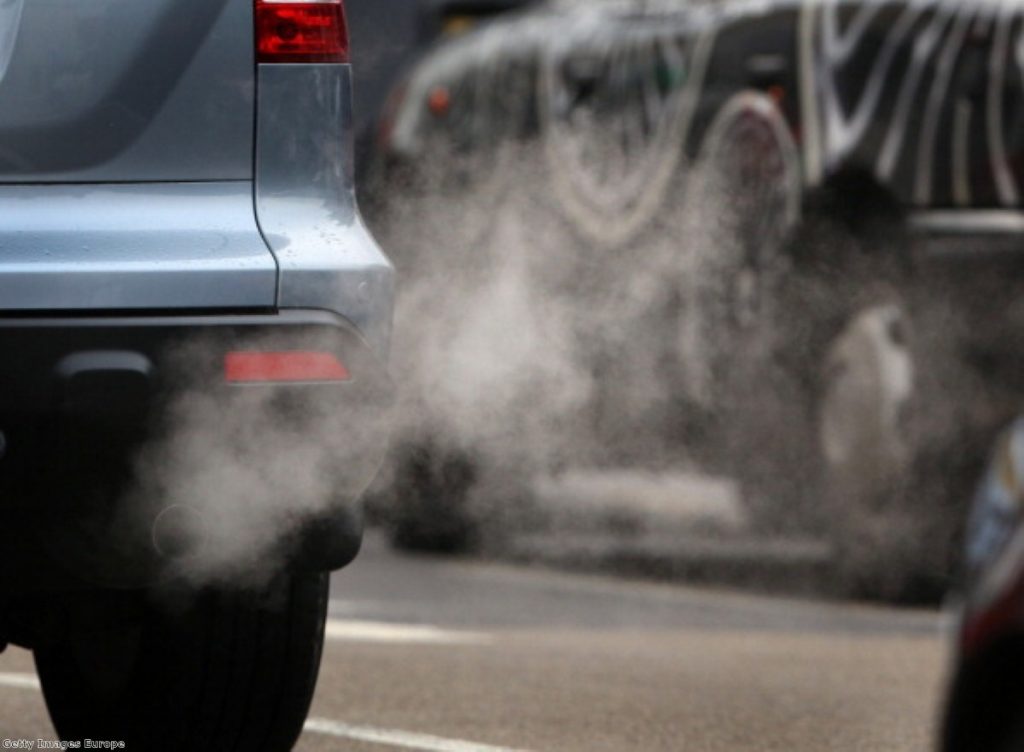Comment: Only ending our reliance on cars will clean our air
By Jenny Jones
Do you remember the electric car revolution in London? Boris Johnson announced it in the national press in 2009 and then re-announced it a couple more times in the following years. There were going to be a hundred thousand electric vehicles on our roads ‘as soon as possible’ and that was certainly going to be around 2020, maybe. It is even in his transport strategy, under the section dealing with reducing climate change emissions.
It is the classic example of a politician promoting a technical fix with enthusiasm and gusto. It has popular appeal because it requires no big change in the way we live our lives. It is all positive news, we can drive to the gym and save the planet at the same time. As with most political promises of cake and more cake, it is a big fat lie.
Last year, I examined how fast this revolution was progressing and I realised that we had made such slow progress under this Mayor that it would take us several centuries to reach his hundred thousand electric vehicle target. His promise of 25,000 electric charging points by 2015 got scaled down, outsourced and discredited. The hard work of converting London’s black cab fleet to electric has all been bounced into the next Mayor’s lap.


What Boris Johnson did achieve with his talk of London becoming the electric vehicle capital of Europe was to convince the public that something was being done about harmful vehicle emissions. The media debate has been dominated for years by the Mayor’s success or failure in delivering cleaner vehicles rather than discussing the much more direct and effective solution of reducing car journeys.
The same thing has happened on a national scale. Around the turn of this new century, Friends of the Earth closed down their air pollution campaign as their work appeared to be done. Government’s across Europe had agreed on a timetable of ever tighter regulations for new vehicles which would slowly reduce emissions and improve air pollution. For nearly a decade, the computer generated models all showed that things were getting better and people would be getting healthier.
All of us focused on speeding up the pace of change with policies like the London low emission zone. The problem was that reality didn’t agree with the computer. In fact, Nitrogen Oxide emissions stopped getting better around eight years ago and it turns out that some of the diesel vehicles made in 2010 chucked out more NO2 pollution than the earlier models.
We can blame the vehicle manufacturers, or the failure of the European Commission to get stuck in and monitor them properly. We can blame the technology which helped reduce the problem of particulate emissions while creating a bigger problem with NO2 on congested urban roads. We can blame the complacent civil servants or the politicians, for turning a blind eye whilst the evidence of health risks has got progressively more worrying.
There are lots of potential targets of blame, just as with the failure of the Mayor’s electric vehicle revolution. However, the real problem is that we think that technology will always get us off the hook and we can carry on with the same damaging lifestyles.
Diesel vehicles which are better for climate change than petrol vehicles, are worse for people’s health. Environmentally friendly electric vehicles can still kill and injure people. Cleaner roads can still split communities and restrict the lives of adults and children who want to walk or cycle.
It is very telling that neither this Mayor, nor the last, included traffic reduction as part of their air pollution policies. Amazingly London is alone in experiencing 13 years of population growth combined with a decline in traffic. However, that trend has now gone into reverse thanks to Boris Johnson's policies. Things are going to get even worse if we end up spending over £70m a year on new roads in London as Boris plans.
We must stop this dead end policy of building more roads and instead invest more in public transport, cycling and walking. It is our continued reliance on the motor vehicles which has caused dangerous levels of air pollution in London. Only if we understand that can we fix the problem.
Baroness Jenny Jones is a Green Party peer and member of the London Assembly
The opinions in Politics.co.uk's Comment and Analysis section are those of the author and are no reflection of the views of the website or its owners.


